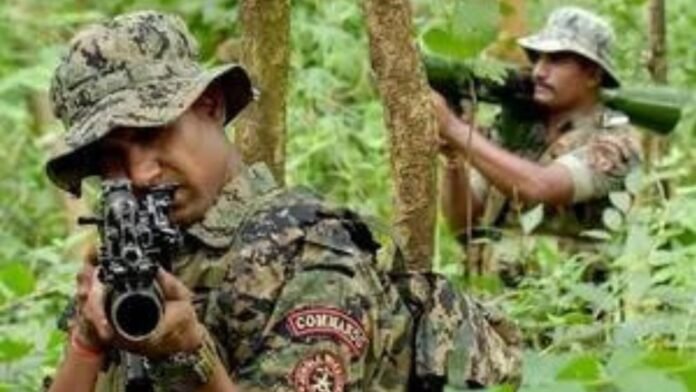Six Maoists were killed in a fierce encounter with police forces in Bhadradri Kothagudem district, Telangana. The confrontation, which occurred in the dense forests of the region, has intensified the focus on the state’s efforts to combat left-wing extremism.
Details of the Encounter
The encounter took place on the morning of September 4, 2024, when a team of Special Forces and local police, acting on a tip-off, conducted an operation in the dense forest area of Bhadradri Kothagudem. The region, known for its challenging terrain and dense vegetation, has been a hotspot for Maoist activities for years.
According to police sources, the forces were initially ambushed by a group of heavily armed Maoists. The police responded swiftly, resulting in a fierce gunfight that lasted for several hours. The confrontation left six Maoists dead and several others injured. Authorities have identified the deceased as key members of the banned Communist Party of India (Maoist) and believe they were involved in planning and executing several violent activities in the region.
Context and Background
Bhadradri Kothagudem, located in the southern part of Telangana, has long been a stronghold for Maoist insurgents. The area’s difficult terrain has made it challenging for security forces to maintain a constant presence, providing the Maoists with a degree of operational freedom. The recent encounter underscores the ongoing struggle between the Maoists and state forces as the government seeks to eradicate left-wing extremism.
The Maoists, who advocate for a radical reorganization of society and economy, have been involved in various forms of violent insurgency, including attacks on police stations, extortion, and recruitment of young recruits. The group’s presence in the region has led to numerous clashes with security forces, as well as significant civilian casualties and displacement.
Police and Government Response
Following the encounter, Telangana Police Chief, Mahesh Muralidhar Bhagwat, praised the courage and efficiency of the Special Forces and local police involved in the operation. In a press briefing, Bhagwat stated, “The successful operation demonstrates our commitment to combating left-wing extremism and maintaining peace in the region. We will continue to conduct such operations to ensure the safety and security of our citizens.”
The state government has also expressed support for the police action, emphasizing the need for continued vigilance and proactive measures to address Maoist activities. Telangana’s Home Minister, M. Mahender Reddy, reaffirmed the government’s stance against insurgency, stating, “Our government is resolute in its fight against Maoist violence. We will not rest until all insurgents are brought to justice.”
Reactions from Various Quarters
The encounter has elicited varied reactions from different quarters. While government officials and security forces have hailed the operation as a success, human rights organizations and activists have raised concerns about the implications of such encounters. Some critics argue that encounters like these often result in extrajudicial killings and do not address the underlying socio-economic issues that fuel insurgency.
In contrast, supporters of the police action view it as a necessary measure to ensure security and uphold the rule of law. They argue that the Maoists’ violent tactics and attacks on civilians necessitate a strong response from the state.
Moving Forward
The encounter in Bhadradri Kothagudem is likely to have a lasting impact on the ongoing conflict between Maoist insurgents and state forces. The death of six Maoists is a significant blow to the insurgent group, but it also raises questions about the broader strategy to address Maoist insurgency.
The Telangana government and security forces will need to balance their efforts between conducting security operations and addressing the root causes of insurgency. This includes tackling issues such as poverty, lack of development, and political disenfranchisement, which are often cited as factors contributing to the rise of Maoist movements.
As the situation continues to develop, all eyes will be on how the government and security forces manage the delicate balance between maintaining security and addressing the broader socio-economic challenges that underpin the Maoist insurgency.

